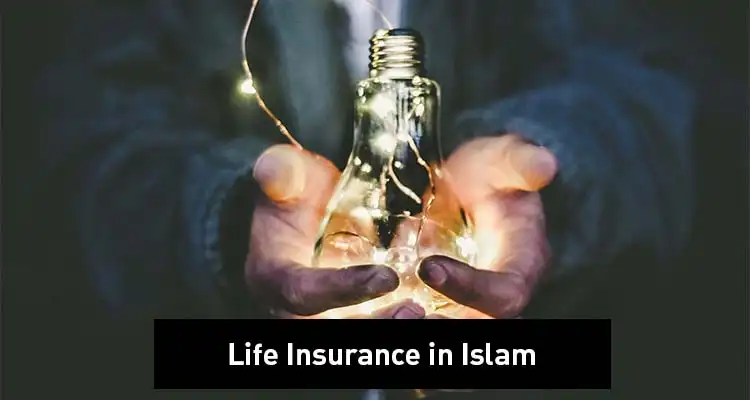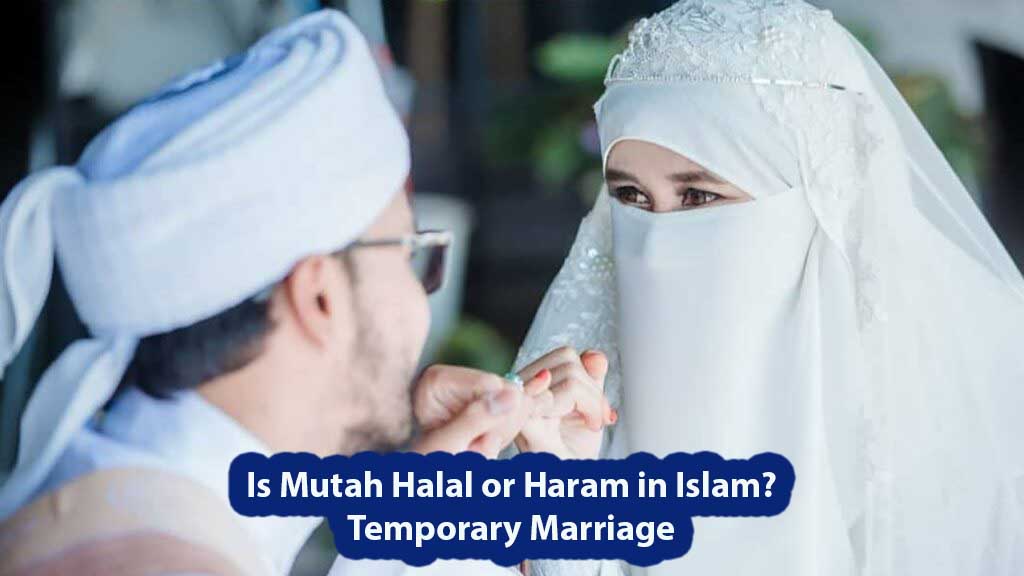Life insurance is insurance that gives you a sum of money either after your death or after a set period of time.
How does life insurance work?
Life insurance works in these steps:
- The life insurance policy is a contract between the policyholder and the insurance company where;
- The policyholder gives periodic installments to the insurance company over the term of the insurance.
- If the policyholder dies, the family will get considerable money.
- At the Last of the policy, the policyholder will receive a large amount of money and a period of time if he is alive.
Islam About Life Insurance
Islamically life insurance is haram and not accepted. In Islam, the other insurance is halal except life insurance.
Reasons why Life Insurance is Haram
There are three main reasons why life insurance is haram in Islam.
1. Income in Interest
All Muslims know that the interest is haram in the Islamic religion. Most insurance companies are working on the interest; their profit is also interest income. They are earning interest with your insurance installments. Eventually, you and your family get this. So, Income in Interest is the first reason life insurance is haram in Islam.
2. Betting on Your Life
The second reason, life insurance is haram in Islam is because it is somehow betting on your life. If someone pays only one insurance installment and suddenly dies for any reason, his family gets the total amount of insurance.
As the person only pays one installment and gets the total amount, the policyholder does not get the money in the ways Islam allows. For that reason, even if the insurance company has not earned interest money due to gambling elements, the life insurance is not halal.
3. Qamar/Maysir
- Qamar means betting, and maysir means gambling. They happen when the result of a transaction is left to chance with a possibility that one side may be at a complete loss.
- Qamar/Maysir in insurance agreements in that the result is left to chance. You could give insurance installments for years. No crisis happened, so you receive nothing. Or you could give for a shorter time than crisis strikes and get a significant payoff. It is the key to gambling and betting.
- In Islam, gambling and betting are harams. Holy Qur’an also mentions this.
- Muslim scholars talk about the elements of Qimar/Maysir (gambling) in insurance policies in more detail.
- In short, they state that if the policyholder knew that no adversity would ever happen, they would have nothing. Then they would never throw away their money for an insurance policy.
- And if the insurance company knew that the policyholder would have adversity in a short time. And as per the insurance policy, they would have to give thousands/millions to someone who pays a small number of installments. Then they would never consider this policyholder.
- It is the things of betting/gambling (Qimar/Maysir). Where the result of a gain is left to chance, one party may be at a total loss.
- Insurance contracts are not ‘profit and loss share’ like the stock market
- In Islam, it can invest in a halal company and distribute profit and loss between different stakeholders.
- Getting an insurance policy is not a ‘profit and loss share.’ It is different from that. One side gets at the loss of the other, just like in betting, gambling, or the lottery. So the risk chances of insurance, stocks, and shares are different.
- Insurance companies lose if the policyholder claims while the policyholder takes advantage of the claim. And the policyholder loses if they do not claim, while the insurance companies get an advantage by keeping the installments. It is the essence of gambling where chance describes who is a winner and who is a loser.
- So one more time, the stocks and shares analogy has no significance to conventional insurance contracts.
4. Intention & Contracts in Islam
In Islam, actions are judged by intentions, and transactions are explained by their contracts. Someone getting an insurance policy is not doing it with the intention of investing in the insurance business. Not also, they are signing an agreement of investment return if the insurance business does well. But they are doing it with the intention of contractual contract of getting a payout if they get a loss.
The contract for investment in a company is different from the contract of an insurance policy, so because of intention, life insurance is haram in Islam.
5. Show Faith in Allah S.W.T
Believing in Allah is mandatory for all Muslims, and having faith in Allah is also essential. You have to be faith in Allah because Allah is feeding you throughout your life, and as Allah feeds you throughout your life, he can also feed your children.
And suppose you still want to secure your family’s future. In that case, there are also many ways like making investments in real estate, savings, and many other investments which can generate a regular income.
6. Gharar
The meaning of the Arabic word Gharar is uncertainty. The sale of something unknown is called Gharar.
Gharar in insurance agreements is that you are unsure what you will get. You could give insurance installments for months/years, but at last, you get nothing. No misfortune occurred, so there was no payoff. Or you could give insurance installments for one month, and something occurs, and you gain a large payout.
This ambiguity in Islamic finance is known as Gharar, and Gharar is not halal. Because of that, in Islamic banking Gharar is prohibited.
Allah also prohibits Gharar.
7. The consensus of Most Islamic Scholars
Because of above mention reasons, the scholars unanimously agreed and decided that life insurance is not halal in Islam.
Final Thoughts
At last, it is confirmed that life insurance is not halal in Islam for the reasons mentioned above. And if you are taking the life insurance and you are a Muslim, you are doing haram, and haram things are the major sins in Islam.




Assalamualaikum,
Valuable content jazak Allah khair.
Pls do say in this case, is medical insurance halal..???